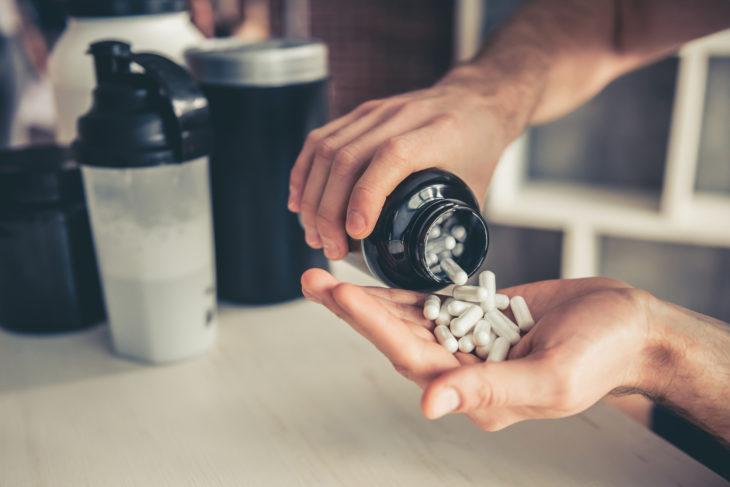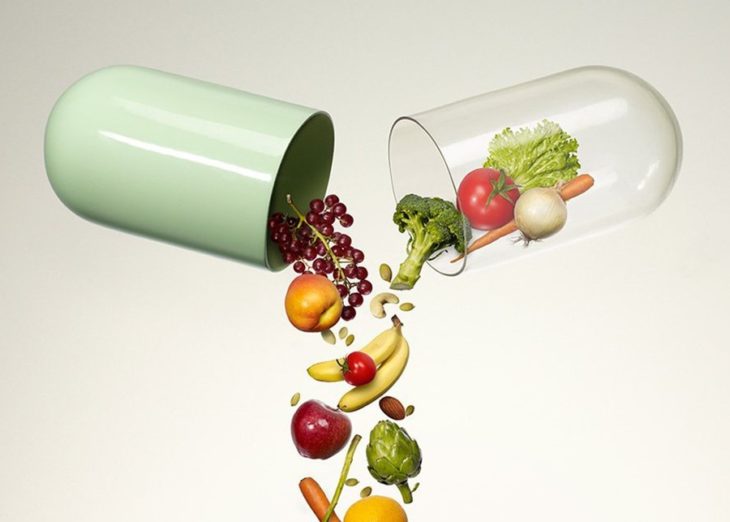Adding a supplement or vitamin to your diet, means that you are lacking nutrients and other compounds. Before buying any product, there are things you should look into, such as certification through regulatory organisms (like the FDA) and the potential effect the product may have, by interacting with a medicine you already take. Here is more information you need to know, before buying dietary supplements and vitamins.

Source: WebMD
Contents
Look for High-quality Products
If your doctor recommended that you add food supplements or vitamins to your diet, or you decided you needed some to help with your health, then you should make sure first, that the product you buy is of the highest quality on the market. Food supplements and vitamins will enter your body and interact with it, in a similar way that any medicine would. Therefore, you need to prioritize the level of quality, over all other qualities it may have.
How you do so is by looking at the company that produces them, and the certification they have received by third parties. The more information you can find about the product, the better it is. Here is an example of what you need to look for:
If you go to elevant.co, you will find all the information about their NMN products and how it helps boost DNA+ inside your body, providing you with more energy and acting as protection against viruses and infections. The brand, which is American, produces in Europe, providing you with another guarantee of quality. But what is most important, is that they are transparent about their production and distribution route. That and the fact that their product received strict safety endorsement from the FDA, in November 2024, when it was given the status of Self-GRAS (which means Generally Recognized as Safe). This is the kind of level of quality for supplements, that you need to look for, no matter what your deficiencies are.

Source: fruitsdebretagne
Make sure You need it
You should not add a dietary supplement to your daily intake if you don’t need them. At best, it would be useless, and at worst, dangerous. As we mentioned before, it is possible for a doctor to suggest that you take a food supplement, if your blood or urine test results indicate that you have a particular deficiency. However, you don’t always have to go to see a doctor before adding a dietary supplement. There are common reasons which can justify the action.

Source: netdna-ssl.com
The Age
Your age might be one of them. If we continue with the example in the section above, NAD+ is something your body produces by itself, but it slows down with age. Therefore, it is totally natural that you add NMN as a supplement, which will help boost the production of NDA+ inside your body. It is also true of many other elements that are less and less present inside you, the older you get, such as Vitamin D.

Source: Gene Food
Medications or Medical Conditions
Some medications you take, may end-up increasing some deficiencies you already have, or it may induce new ones. That is the case for proton pump inhibitors that stops your body from absorbing vitamin B12, which is important to everyone. And then, there are diseases that will simply disrupt your whole digestive system, like Crohn or the celiac diseases. In both cases, the person suffering from these health problems should compensate for nutrient deficiencies. However, it is always better to talk to your doctor first, who can precisely point you towards what you should add to your diet.

Source: NutraIngredients
Allergies or Diets
Those are two completely different things, since one is by choice and the other, not. However, they both refer to the same principle: There are things you can eat and those that are forbidden. The first is definitely more complicated than the second one, since eating a product you are allergic to could kill you. And yet, in this food, you often find vitamins and nutrients your body would need, to be fine-tuned. If you cannot find another particular food with the same properties, missing in your diet, then supplements are definitely necessary for you.
When it comes to diet, it should be easier, since one should know what he is eating. Vegan diets are particularly prone to deficiencies, but its adepts are usually well-informed and therefore, know exactly what to eat and how to compensate for whatever they are missing through this type of diet.

Source: The Foodstate Company
Read the Ingredients on the Box or the Bottle
Granted, everyone should do so, for everything they ingest. But although people are more aware today than they were a few years ago, about reading ingredients before buying food at the supermarket, most still don’t do it. If that is your case, you should still do so, next time you go out to buy food supplements. Otherwise, you may either spend money for no reason, or risk your health.
What you are looking for, mostly, is what shouldn’t be included in the product. That is because many companies add a large number of unnecessary additives, to fill the product, at lesser cost. The cheaper products are usually the worse about this issue. In truth, the additives are not only useless, but they can also stop your body from ingesting the active ingredient you are looking to add to your nutrition.
Again, we can only suggest that you look for the highest-quality products. It may even simplify your life while making your choice, as they tend to indicate that they do not contain the ingredients the other place uselessly. These are: gluten, wheat, lactose, eggs, soy, shellfish, tree nuts, peanuts, and artificial preservatives or colourings.

Source: Gloryfeel
Last but Not Least: Check the Dosage
When it comes to supplements: More is not always better. Going overboard on a vitamin or supplement may provide you with problems instead of benefits. The dosage can also greatly affect the price between two products. You may feel you are getting a great deal, but in the end, what you are paying for, at lower cost, won’t produce the results you are looking for, in your body.
